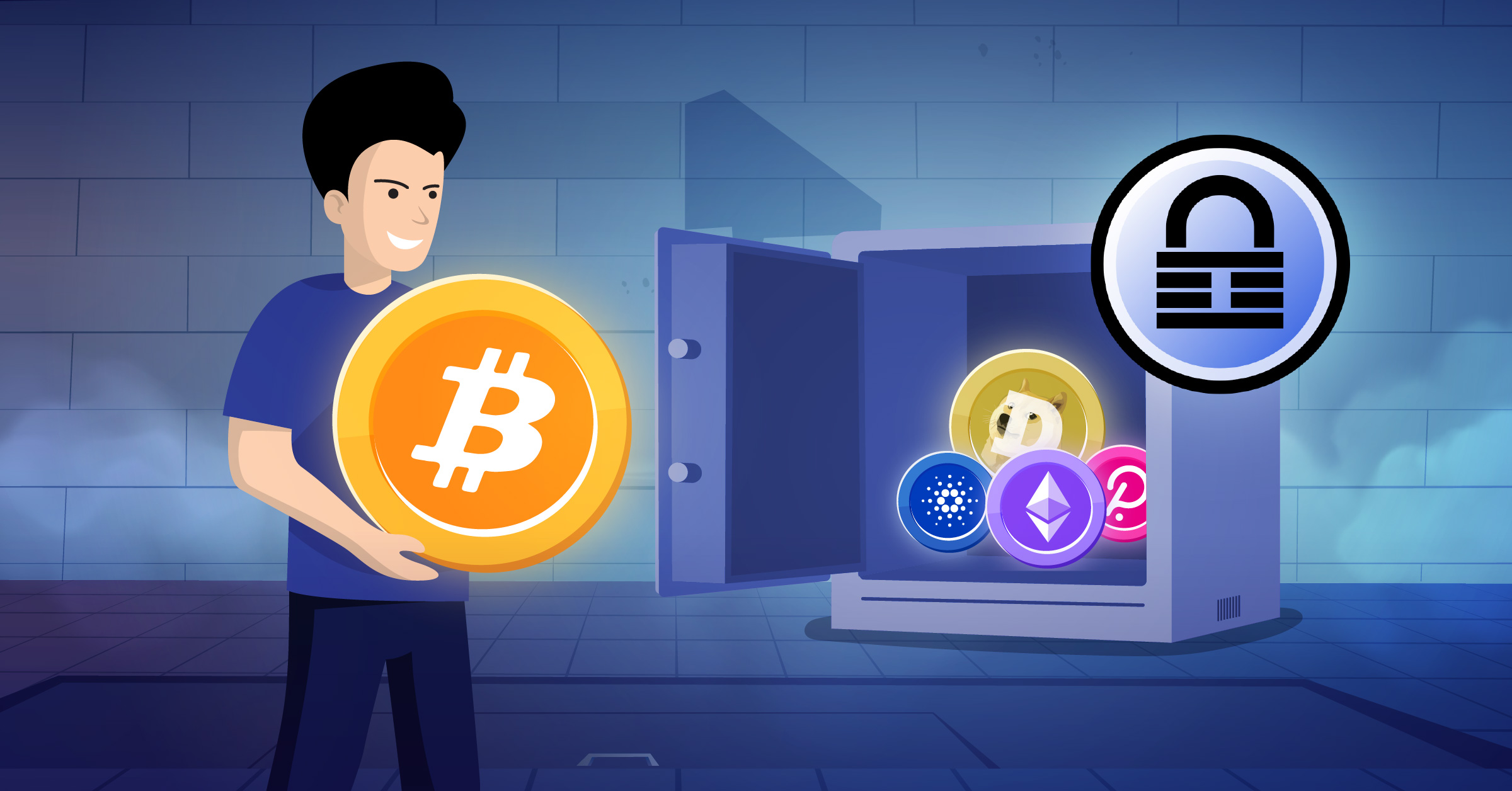The security of your priceless digital assets is essential in cryptocurrency. It’s critical to take preemptive measures to protect your cryptocurrency assets because of the impending cyber threats and the possibility of user error. You’ll find helpful advice and tactics in this post to help you store your cryptocurrency assets safely.
- Use Hardware Wallets for Offline Storage: Hardware wallets are one of the safest ways to store your bitcoins. These tangible objects add protection by preventing online access to your private keys. Well-known hardware wallets like Ledger and Trezor use advanced encryption and security components to shield your valuables from online threats.
- Make a backup of your wallet: Always retain a copy of your wallet and store it in a safe place. A backup will guarantee that you can restore your wallet and regain access to your money in case of a hardware malfunction or loss. Make numerous backup copies, and think about using secure offline or cloud storage.
- Use Multi-Factor Authentication: Turn on MFA for all your accounts related to cryptocurrencies. Requiring a second verification step besides your password, such as a unique code texted to your mobile device, offers additional security. Even if someone manages to get their hands on your password, MFA assures that they can only access your accounts with the second verification factor.
- Maintain Software Updates: Outdated software can significantly increase security risks. Update your operating system, wallet software, and any auxiliary plugins regularly. Updates that fix security flaws and improve the overall security of your crypto storage are routinely released by developers.
- Use Strong and Unique Passwords: You should use solid and distinctive passwords to secure your exchange and wallet accounts. Avoid using the same password on various platforms or using a common one. To create and safely store strong passwords, consider utilizing a password manager. This will prevent your other accounts from being at risk if one of your accounts is compromised.
- Watch out for Phishing Attempts: The crypto industry is rife with phishing attacks. Use caution when opening emails or accessing links related to your cryptocurrency accounts. Always verify the legitimacy of communications and their source before submitting critical information. Authentic companies will never ask for private keys or passwords, so be suspicious of any demands for this information.
- Diversify Your Storage Sites: To reduce risk further, consider varying your storage sites and procedures. Combine hardware wallets, paper wallets, and encrypted digital storage to protect your money. Spreading out your cryptocurrency holdings over several secure locations lowers the likelihood that you will lose everything in the event of a single security breach or failure.
- Use Cold Storage for Long-Term Holdings: Consider “cold storage” solutions when holding cryptocurrency for an extended period or in large quantities. Cold storage, which can be done on a paper wallet or an offline computer, refers to keeping your private keys offline. When used correctly, this technique offers a higher level of security against threats from the internet.
- Stay Informed and Educated: It’s essential to stay updated on the most recent security best practices in the cryptocurrency sector. Join online forums where industry experts discuss topics of interest, follow security-oriented blogs, and subscribe to reliable crypto news sources. Maintaining your knowledge will enable you to efficiently secure crypto assets and react to the changing security scene.
- Use caution while utilizing third-party services like cryptocurrency exchanges or online marketplaces to store or conduct business with your crypto assets. Research their track record and security protocols before entrusting these services with your money. Look for well-known platforms with a history of security and enthusiastic customer reviews. Be aware of unproven or new media because they may carry more dangers.
- Often Check Your Accounts: Keep an eye out for any unusual activity and often check your cryptocurrency accounts. Watch out for suspicious activity, unfamiliar IP addresses logging into your bills, or other indications of a possible compromise. Security lapses or hacking efforts can inflict damage, but early detection can lessen it.
- Maintain a Low Profile: Avoid disclosing too much information about your cryptocurrency investments or transactions on open discussion boards or social media. By telling your assets, you become a more appealing target for scammers or hackers. Keep a low profile and exercise caution while disclosing personal information online.
- Consider your insurance options: As the cryptocurrency market develops, certain insurance providers now provide coverage tailored to crypto assets. Do some research and think about buying insurance for your cryptocurrency investments. Although it might cost more, it can add a layer of security and peace of mind.
- Test Transactions with tiny quantities: It’s recommended to start with minute amounts of cryptocurrency while testing new wallets or conducting recent transactions. With this method, you can ensure everything works before investing further money. It reduces the chance of suffering significant losses due to mistakes or weaknesses.
- Create an Inheritance Plan and include your cryptocurrency holdings in it. Make sure that your loved ones or beneficiaries can access and inherit your cryptocurrency holdings in the event of unforeseen events. Important information should be written down and securely stored with your other estate planning paperwork, including passwords, backup phrases, and instructions for gaining access to your assets.
As you navigate the cryptocurrency world, the security of your crypto assets should be a top priority. You may strengthen your defences against potential dangers by implementing these extra suggestions for secure crypto storage. Utilize certain technologies, stay educated, and practice vigilance. Keep in mind that it is your job to safeguard your digital assets. Taking the proper precautions can secure your crypto holdings and experience peace of mind during your cryptocurrency journey.
